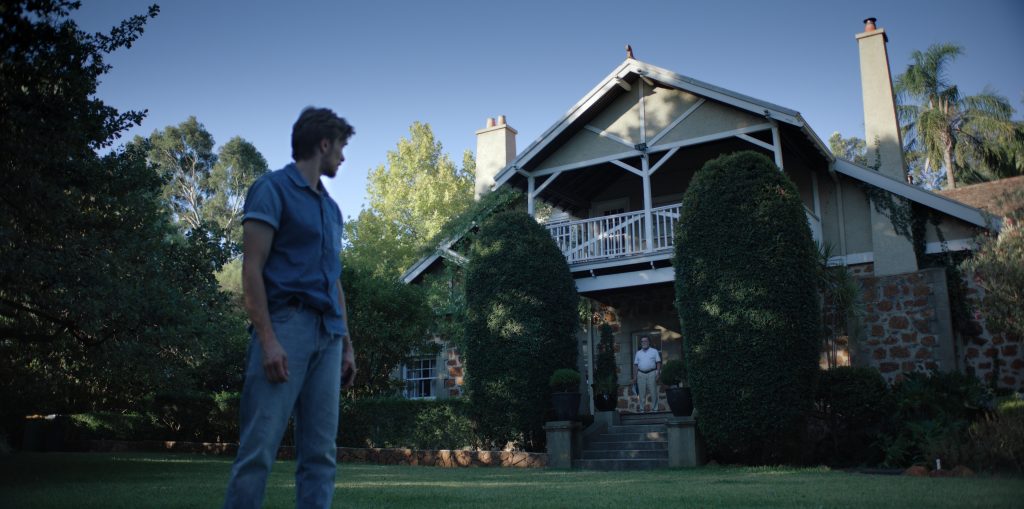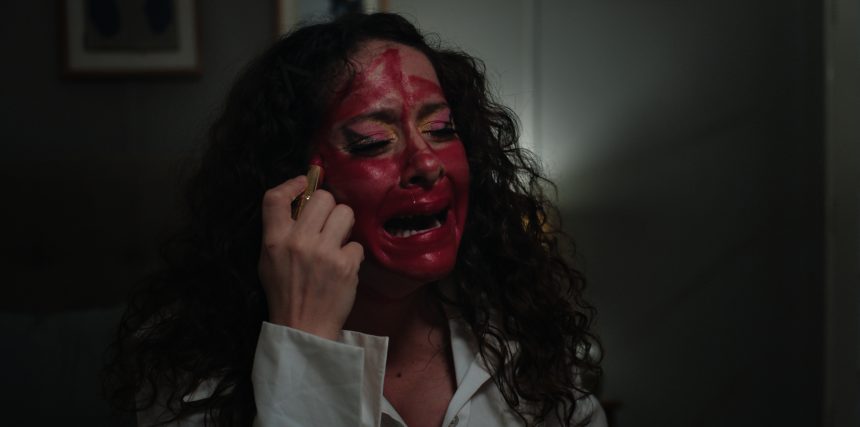The housing market has not traditionally provided a barrel of laughs, unless of course, you’ve already played it like a fiddle and are laughing at your tenants all the way to the bank. For those of us who have yet to nail down that property portfolio, Birthright shows us that we’re not alone.
Two generations of one family collide in this funny, dark, and charming film that’s centered around a bricks- and- mortar residential asset that the Baby Boomers are clinging to and the Millennials want a piece of. The fact that the hyped-up son Cory and his partner from-the-wrong-side-of- the- tracks Jasmine are about to have a baby lends a desperation to their housing woes, and is not the only point in the film that seems to draw on much grander allegories and deeper themes. Mary, Jesus and Joseph trotting off to the manger though this is not- the young couple look at the older generations wealth with not only envy, but a deep resignation that they can never earn what their parents have. Options are in short supply.
Michael Hurst is hilarious as the father who just doesn’t understand why his child can’t build up an empire like he did, ”bit by bit, we turned one jacket and one jumper into a whole house,” he explains. Linda Cropper is excellent as the mother who wants to keep things just as they are.

Written & Directed by Zoe Pepper
Produced by Cody Greenwood
Executive Producers John Maynard,
Sarah Thomson, John Battsek
Director of Photography Michael McDermott ACS
Editor Luca Cappelli
Composer James Peter Brown
Screening at Sydney Film Festival 2025
Premiered at Tribeca Film Festival 2025.
Starring Travis Jeffery as Cory, Maria Angelico as Jasmine, Michael Hurst as Richard and Linda Cropper as Lyn
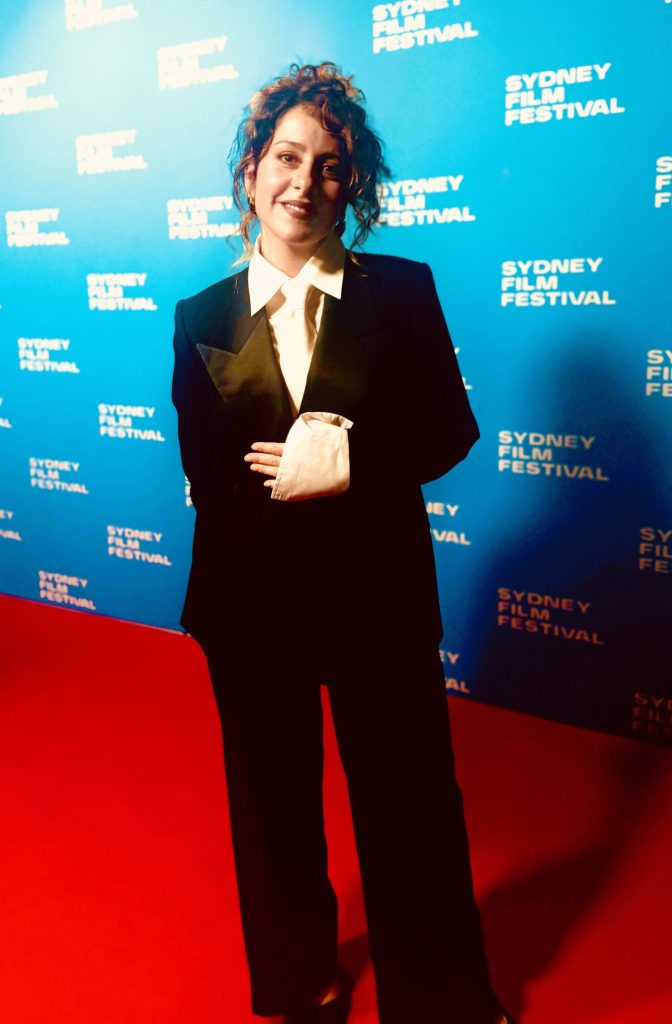
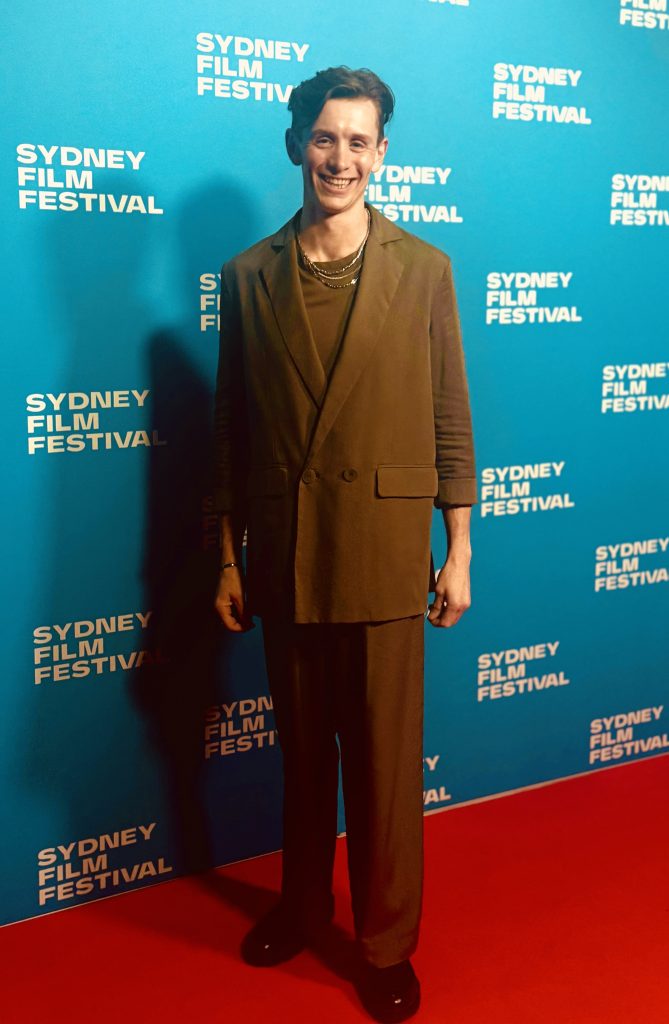
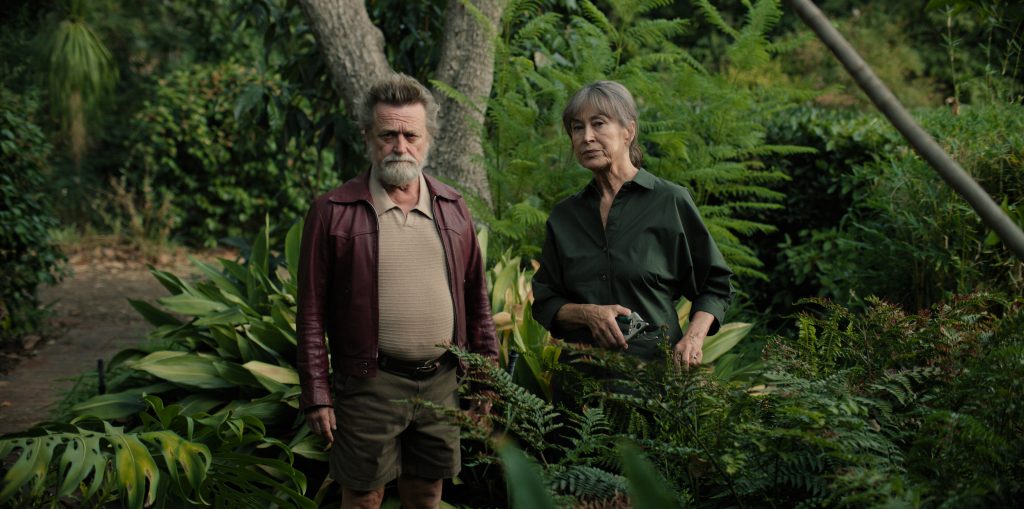
The film becomes increasingly dark and desperate as time goes on. Fittingly, the whole story takes place in the house and the garden, the two couples eventually declaring war on each other, and laying down a winner- takes- all claim to the space. An at times classical score, and dramatic visual vignettes, lend great poignancy to the often very funny scenes. In the end the housing crisis isn’t fixed, but the more extreme solutions are explored.
Birthright is the debut feature film for director Zoe Pepper, coming to filmmaking after a long career in theatre. She wrote on the comedic thriller series, Population 11 for Jungle Entertainment, and has won an Australian Writer’s Guild award and a Director’s Guild Award. Her theatre work is Helpmann nominated and has toured extensively, notably The Irresistible played at Dark Mofo festival and the Sydney Opera House. Zoe co-wrote and directed the web series The Big Spaghetti which played at Slamdance Film festival, and she is the co-founder of Audioplay, an award-winning interactive audio app for kids.
Irresistible chatted to Zoe about she’s blending her theatre past and filmic future, her experiences making Birthright, and how she managed to make the rampant late-stage capitalist neoliberalist disaster we’re all living in so funny.

Congratulations on your Tribeca selection where Birthright has just premiered! It sounds like it went down really well over there. How do you think the American audience felt about the universality of intergenerational economic warfare!
Zoe Pepper: Thanks so much! Yeah, we were so happy with how it played at Tribeca. it was so great to see that the humour landed with the crowd.
In terms of the intergenerational economic warfare – Americans speak capitalism more fluently than we do, so they absolutely got it. Their generational inequality is not so completely distilled in housing, so I’m really curious to see how this is felt and understood by an Australian audience.
The film is very funny, but of course, different cultures can find different things funny. Did the Tribeca audiences laugh in all the right places?
ZP: They laughed a lot, which was great! The script for Birthright was very idiosyncratic, I didn’t hold back on the weird, so I’m enjoying seeing that audiences find it funny.
I’m excited for it to play at Sydney and see the differences in how the audience reacts.

There’s a desire in the Australian film industry to develop films that can be recognised as brand Australian overseas. I would think this film would tick all those boxes. Did you find people talking to you over there about your film as a particularly Australian one?
ZP: The dryness of the humour is probably the most Australian thing about the film. But beyond that I don’t think this is the type of film Australia is really known for, especially in terms of contemporary cinema. That people can identify with the themes and the characters is what I appreciated the most. The universality of the story is what is most important to me.
You’ve come from a theatre background, and there is definitely that sense of intensity in the film as you hone in on just four characters, and yet it doesn’t feel like a play put into a film. How hard was it to blend different theatre and film inclinations or directions?
ZP: I think my theatre background gives me a different approach to working with actors. I demand a lot of actors and really push to get a specific performance.
Going into production on Birthright I was cognisant of my strengths and weaknesses and I tried to be very prepared to compensate for areas where I’m less experience, which is mainly on the technical side of filmmaking. I’m glad to hear it doesn’t feel like a play on film.
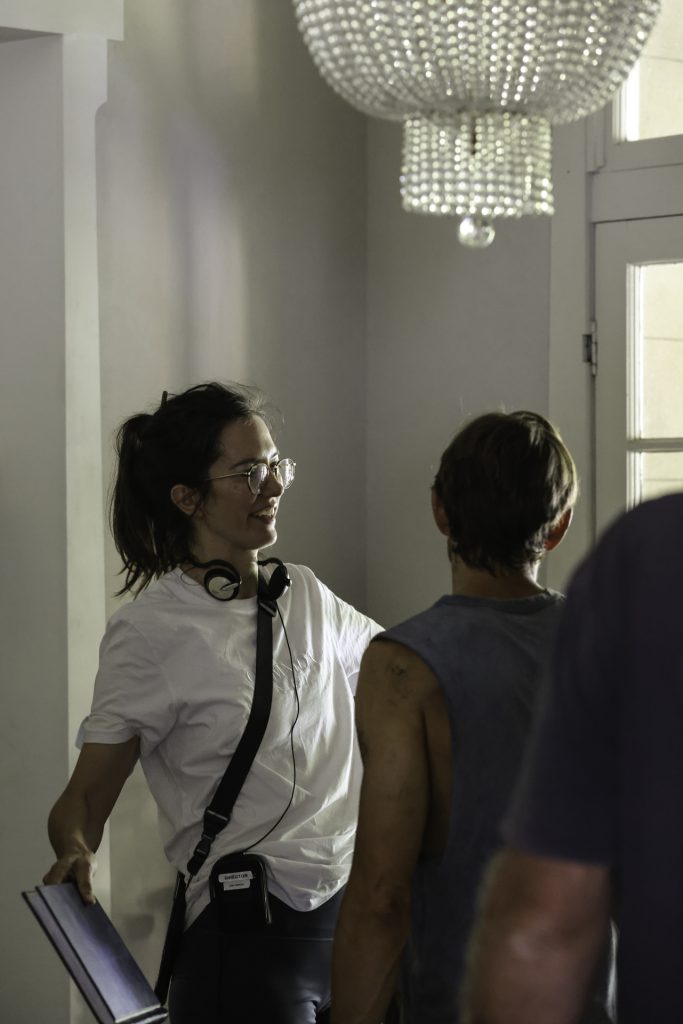
The music gives another layer to the intensity and dark humour, and it can at times even feel operatic. You also often have a dark colour palette. Can you tell us a bit about some of those choices.
ZP: Music is always really important in my work as a tool to invite the audience in to the emotional world of the film. James Peter Brown composed the score and he really did such an incredible job.
The film has an allegorical quality and the score was important to help the story transcend beyond the single location where the film takes place. I wanted the score to make the story to seem more than the sum of its part – to give it a real sense of grandeur.
The themes of boomerang kids and growing inequality and opportunities between the generations are obviously a big part of the film. It moves from the conceptual to the almost primitive biological need to provide shelter to a newborn. Did you find you were dancing between the more intellectual and more emotional dimensions to the arguments- like the two sides of the same coin?
ZP: I think of the story as running on a kind of emotional logic. Cory’s need to find shelter is urgent and very real, but his desires are also wrapped up in his childhood aspirations. He has a worldview that he absorbed from his parents of what he thought his life would look like when he was grown up. But it hasn’t turned out like that because the world has changed so radically. Cory is very much wrestling with a sense of failure. I wanted to explore what this generational inequality does to your psyche. The Cory and Jasmines of the world are told that if you fail it’s your fault and at the same time making it impossible for them to succeed.
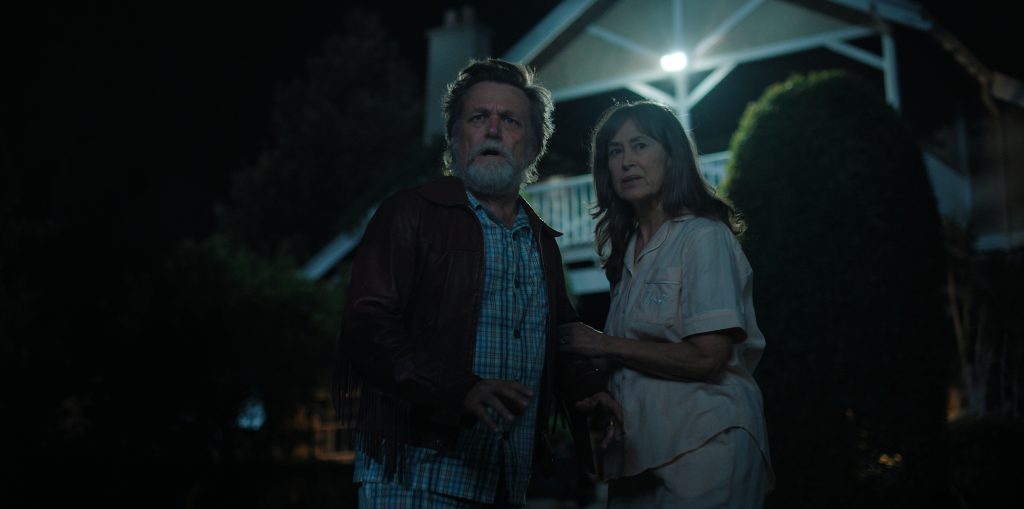
You got some great performances out of the cast. They were all brilliant and Maria Angelico is such a scene stealer. Can you tell us a couple of your favourite experiences working with them?
ZP: Maria gave such a nuanced performance, she’s an absolute gem. She really understood my sense of humour and the subtleties of the class difference between Jasmine and Cory’s family, which was really important to me.
We had a two-week rehearsal period ahead of the shoot which was such an asset and gave the cast the opportunity to get to know each other, get to know me and get the tone, so that they were all playing in the same film. I demanded a lot of the cast and I’m so grateful that they were willing to be pushed. The tone of the film requires a performance style that goes all in.
Did someone really have to dig the pool out??
ZP: Haha the pool! It was a monumental effort. It’s a real smoke and mirrors number getting the pool looking so good. Head of construction, Nathan Nisbet was the brains behind thinking this through and making it look so convincing.
The scene early on when Jasmine is going through the bins is funny, and then how the very red lipstick becomes a motif through the film is clever. Was there some point there you were making beyond waste, maybe about performativeness, or about female solidarity, or the lack of it?
ZP: Jasmine is very much the fish out of water in this story. When she fishes the lipstick out of the bin, its more about establishing her class than anything else. She’s scrappier and more working class than Cory and his family and she’s also not as entitled as Cory.
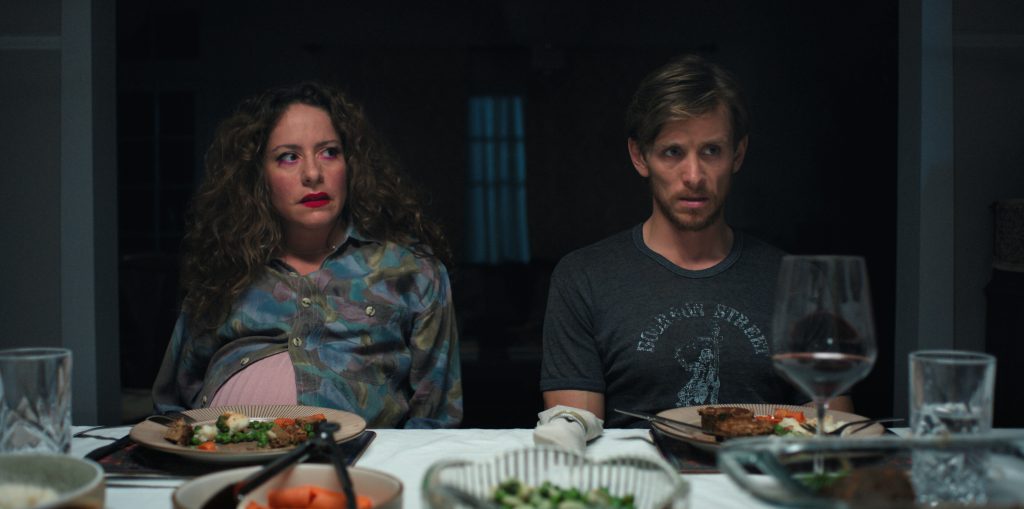
Obviously, we won’t give the ending away, but it’s pretty dramatic. Have you thought about what you see as some of the answers to the housing crisis. Is it about moving to a different model rather than just all fighting for the same thing?
ZP: The commodification of housing is destroying the fabric of our society. Australia is so acutely divided between those who own their home and those who don’t, it’s turbo charging inequality. Younger people are pissed off about it and so they should be. The problem is so entrenched that a solution is complicated but major tax reform that prioritises housing as a necessity and not an investment would be a massive step toward finding a solution.
In your mind, after the film do the young family live happy ever after??
ZP: There are no happy ever afters in Birthright.
